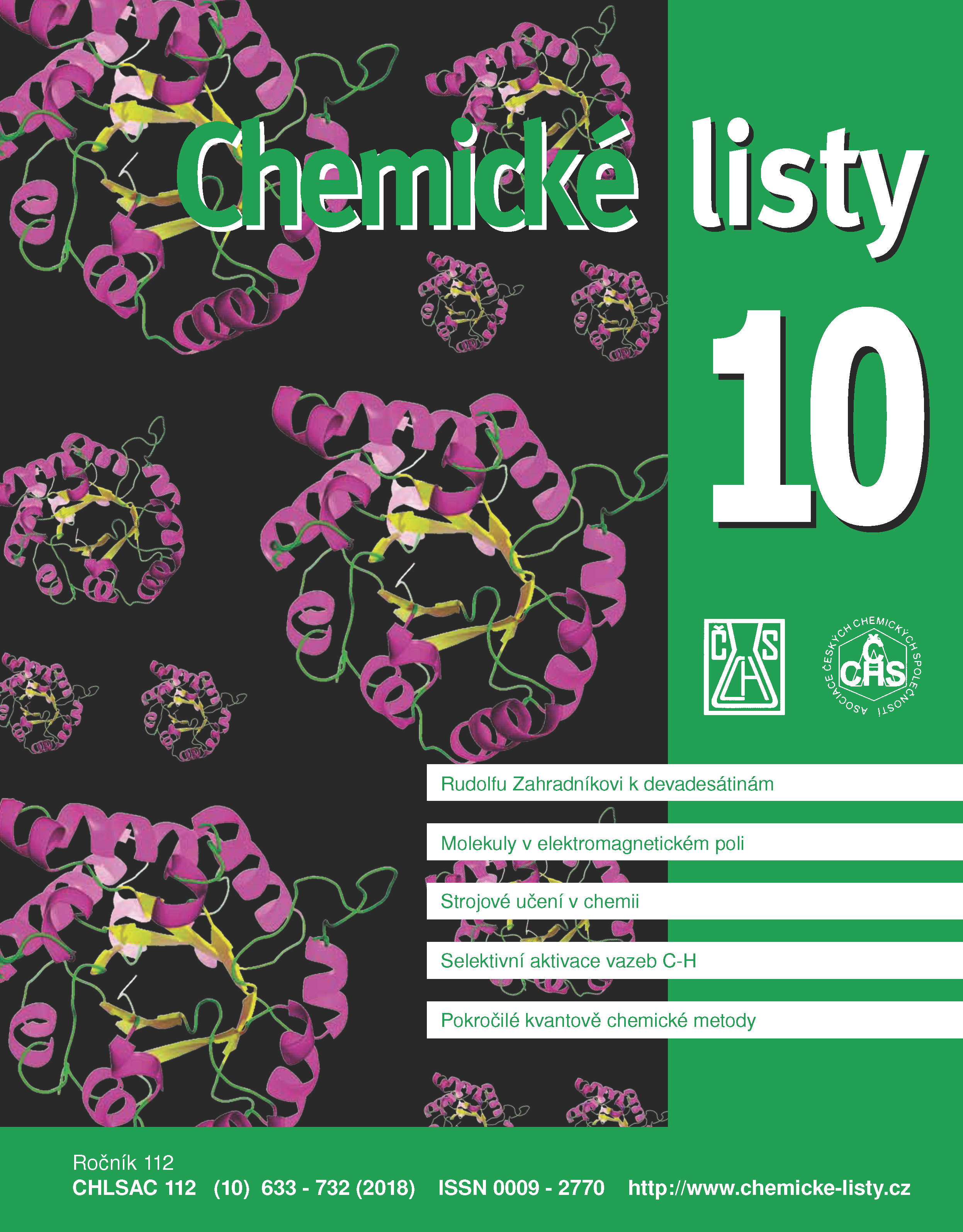Je strojové učení budoucností teoretické chemie?
Klíčová slova:
strojové učení, umělá inteligence, QSAR, kvantová chemie, teoretická chemie, neuronové sítěAbstrakt
The application of the methods of machine learning in chemistry is briefly summarized in the present work. We first explain the basic concepts of artificial intelligence and machine learning. Next, the applications in two particular areas are discussed: searching relations between the structure and biological activity of molecules and using the techniques of machine learning in quantum chemistry as well as in other fields of theoretical chemistry. The evolutionary character of the machine learning approaches is emphasized. A fast development is witnessed in the field which, however, gradually follows the previous development in using statistical techniques in chemistry.





